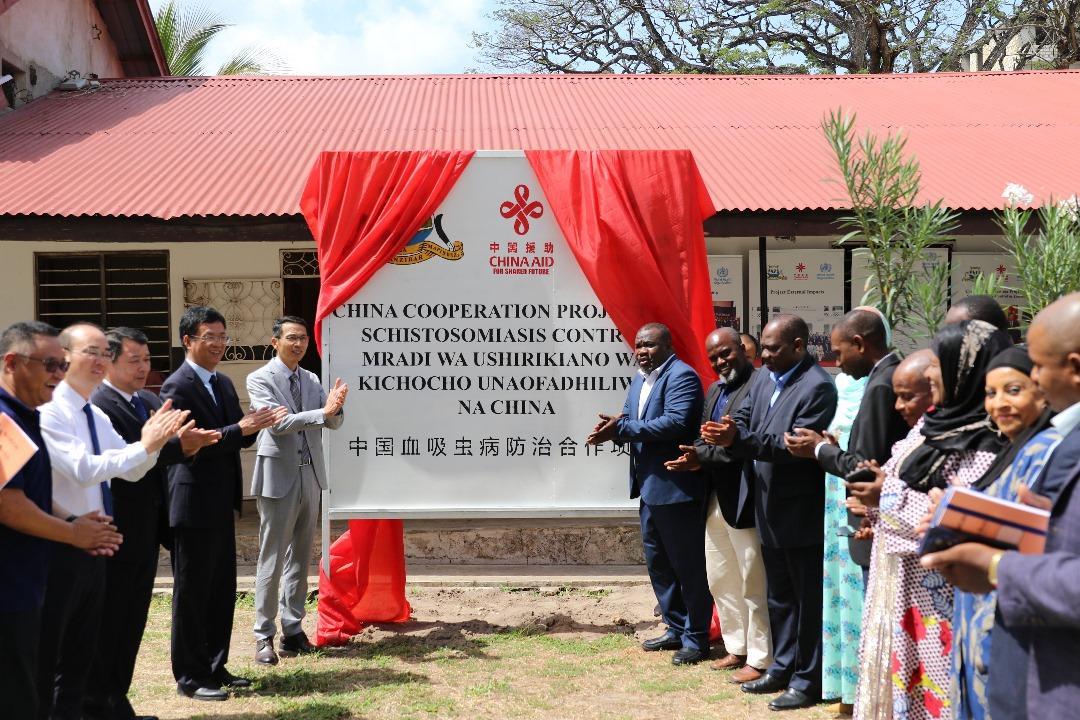Africa-Press – Tanzania. ZANZIBAR in collaboration with China has launched a campaign to eliminate schistosomiasis on Unguja Island, following the successful completion of a similar initiative in Pemba.
Speaking at the launch ceremony held at the Neglected Tropical Diseases (NTDs) Monitoring Centre in Lumumba, Unguja Urban, Deputy Minister for Health, Mr Hassan Khamis Hafidh, praised the significant progress made in controlling the disease in Pemba. “China has moved from being just a friend China is now our brother.
We sincerely thank the China-Aid Schistosomiasis Control Project team for their invaluable contributions to eliminating schistosomiasis, also known as bilharzia, in Pemba Island,” Mr Hafidh said.
He expressed optimism that the success in Pemba would be replicated in Unguja, where the newly launched two-year pilot project will begin in Kinyasini and Bandamaji two Shehias (administrative areas) in the northern region of the island. NTDs Project Manager for Zanzibar Dr Shaali Makeme Ame, explained that the threeyear initiative in Pemba, which began in 2023, had already yielded positive results.
He said that the same intervention strategies would now be implemented in Unguja to eliminate the disease.
However, Dr Ame highlighted several challenges that must be addressed, including low drug coverage and compliance in some areas, development of anthelmintic resistance, limited involvement of key sectors such as the Zanzibar Water Authority (ZAWA) and insufficient financial resources and domestic funding.
“We are still waiting for the Tanzanian government to fulfil the pledge made by President Dr Samia Suluhu Hassan during a health summit in Kigali, Rwanda. She promised a 3 million US dollar contribution to support the fight against NTDs nationwide,” Dr Ame added.
The launch event brought together key stakeholders, including representatives from ZAWA, World Health Organisation, the Tanzania Meteorological Authority (TMA), the Land Commission and the Zanzibar Health Research Institute (ZAHRI), all of whom pledged to collaborate in combating schistosomiasis.
China’s Consul General in Zanzibar, Mr Li Qianghua, reaffirmed China’s commitment to supporting Zanzibar in eliminating the disease. He also praised the efforts of the Chinese medical team for their achievements in Pemba.
Additionally, Mr Yang Kun from the Jiangsu Institute of Parasitic Diseases presented an overview of the disease’s history and development in Zanzibar.
He stressed that work in Unguja has already commenced and urged affected communities to cooperate fully in achieving the project’s goals. Schistosomiasis, or bilharzia, is a parasitic disease caused by blood flukes.
It is commonly associated with poverty and affects people who come into contact with contaminated freshwater.
According to the World Health Organisation (WHO), approximately two million people worldwide are affected by NTDs, including schistosomiasis.
For More News And Analysis About Tanzania Follow Africa-Press







